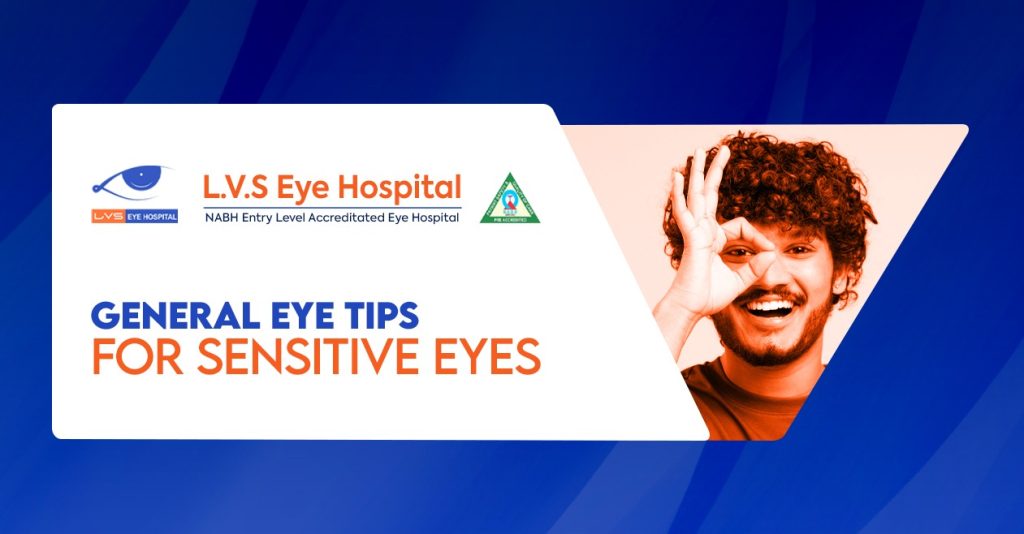
Having sensitive eyes can be a challenge, especially when daily activities or environmental factors cause discomfort or irritation. Sensitive eyes are more prone to redness, watering, itching, and burning sensations, making it crucial to care for them properly. Whether you wear contact lenses, spend long hours in front of screens, or live in a city with high pollution levels, these general eye care tips will help protect and soothe your sensitive eyes.
1. Choose Hypoallergenic Products
If you have sensitive eyes, it’s essential to select hypoallergenic eye care products. From eye drops to makeup, ensure they are free from harsh chemicals, fragrances, and preservatives that can cause irritation. Opt for products specifically labeled as safe for sensitive eyes. When using makeup, consider using non-waterproof formulas, as they are easier to remove and less likely to leave residue that may irritate your eyes.
2. Maintain Proper Hygiene
Maintaining good eye hygiene is crucial to prevent irritation and infections. Wash your hands thoroughly before touching your eyes or handling contact lenses. Regularly clean your contact lenses as per your optometrist’s recommendations, and replace them as advised. Additionally, avoid sharing towels, makeup, or any items that come into contact with your eyes to prevent cross-contamination.
3. Follow the 20-20-20 Rule
Long hours of screen time can cause eye strain, especially for those with sensitive eyes. To minimize strain, follow the 20-20-20 rule: every 20 minutes, take a 20-second break and look at something 20 feet away. This simple habit helps relax the eye muscles and reduces the risk of digital eye strain, which can lead to discomfort and sensitivity.
4. Wear UV-Protective Eyewear
Exposure to the sun’s ultraviolet (UV) rays can exacerbate eye sensitivity and increase the risk of cataracts and other eye conditions. Wearing sunglasses that block 100% of UVA and UVB rays is essential whenever you’re outdoors. Look for wraparound styles that offer better coverage and protection from direct sunlight, wind, and dust particles.
5. Stay Hydrated and Maintain a Healthy Diet
Hydration plays a significant role in eye health, especially for individuals with sensitive eyes. Drink plenty of water throughout the day to keep your eyes well-lubricated and prevent dryness. Additionally, maintain a diet rich in vitamins A, C, and E, as well as omega-3 fatty acids, which are known to promote good eye health. Foods like leafy greens, carrots, fish, nuts, and seeds can provide the nutrients your eyes need to stay healthy.
6. Avoid Rubbing Your Eyes
Rubbing your eyes may provide temporary relief, but it can cause further irritation and even lead to infections. If you feel the urge to rub your eyes, try blinking several times instead, which can help moisten the eyes and remove minor irritants. Using artificial tears or lubricating eye drops, as recommended by your eye care specialist, can also help alleviate dryness and discomfort.
7. Keep Your Environment Eye-Friendly
Sensitive eyes can react to environmental factors such as dust, pollen, smoke, and air pollution. To minimize exposure, keep your living space clean and dust-free. Use air purifiers to filter out allergens, and maintain a comfortable humidity level to prevent dry air from irritating your eyes. If you have allergies, consider using antihistamine eye drops to relieve symptoms.
Caring for sensitive eyes involves a combination of using the right products, maintaining good hygiene, protecting your eyes from environmental factors, and adopting healthy habits. By following these simple tips, you can reduce discomfort and maintain optimal eye health.
For more personalized advice and comprehensive eye care, book a consultation with the best eye hospital in Erode, LVS Eye Hospital.
Your eyes deserve the best care to ensure they stay healthy and comfortable every day.



